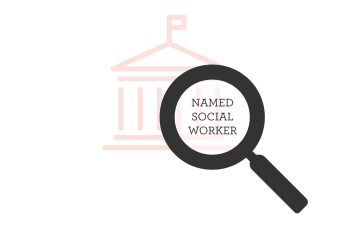Putting people back at the heart of social work
Named Social Worker
With Department of Health and Social Care, SCIE, England
Between 2016 and 2018, Innovation Unit and the Social Care Institute for Excellence (SCIE) supported nine local authorities to develop, implement and evaluate a Named Social Worker approach. The programme was initiated and funded by the Department of Health and Social Care and aimed to pilot approaches that would improve outcomes and experiences for these individuals and for the people around them.
Too many people with learning disabilities, autism and mental health needs are not leading the life they want to live. In the current system, we hear stories of people spending too much time in settings that both restrict their freedom and are far away from their families and friends. We also know that the experience of young people in this cohort growing into adulthood can be challenging and that services can struggle to put long-term care and support in place.
On top of this, services and systems intended to support people are highly complex, expensive and high pressured, meaning it can be hard for professionals and system leaders to imagine what a radically different way of working might look like – and achieve. The Named Social Worker Programme supported sites around England in their endeavour to do things differently, building on the work already underway through the Transforming Care programme.
The problem
1.4 million
people with a learning disability in the UK including 286,000 children. This number is increasing.
58
times more likely that a person with learning disabilities will die before the age of 50 than the rest of the population.
“My ambition for the programme – as it is for everyone we seek to help - is for people with learning disabilities and other cognitive conditions to live a good life. The pilots offer the opportunity for social workers to provide excellent person-centred support for individuals and the people around them. This is a fantastic opportunity to make simple changes with huge, lasting impact.” Lyn Romeo
A Named Social Worker is a dedicated social worker who has an ongoing responsibility for an individual with a learning disability, autism or mental health need. They are the primary point of contact who are responsible for challenging decisions and advocating on behalf of the young person, across the system.
The Department of Health and Social Care initiated the Named Social Worker programme in order to build an understanding of how having a named social worker can contribute to individuals with learning disabilities, autism or mental health needs achieving better outcomes; specifically that they and their family are in control of decisions about their own future, and are supported to live with the dignity and independence which we all strive for. The programme was delivered by Innovation Unit in partnership with the Social Care Institute for Excellence (SCIE) and was specifically about learning about what it takes to do something differently and generating early and indicative evidence as to its impact.
The programme unfolded over two six-month phases between October 2016 and March 2018. It supported nine local authorities to pilot a named social worker approach; this meant people would be allocated a social worker who would build a trusting relationship with them, advocate on their behalf and coordinate their care and support in a more holistic and person-centred way. What the pilots looked like in practice varied across the sites, ranging from developing approaches that build on existing contexts, to tackling local challenges and supporting specific cohorts of people.
Phase one sites: Camden, Calderdale, Hertfordshire, Liverpool, Nottingham, Sheffield
Phase two sites: Bradford, Halton, Hertfordshire, Liverpool, Sheffield, Shropshire
“This is a fantastic scheme meaning people in these areas will receive personalised community care and support to live independently.” Jackie Doyle-Price

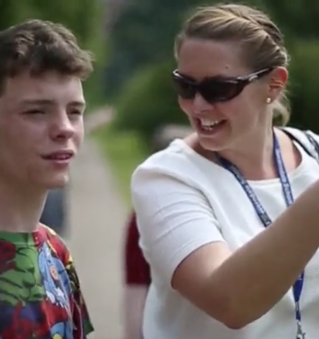
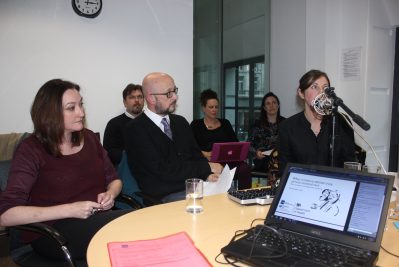
Findings
Following the programme, a set of core features emerged that can form the foundation for areas looking to implement similar approaches locally:
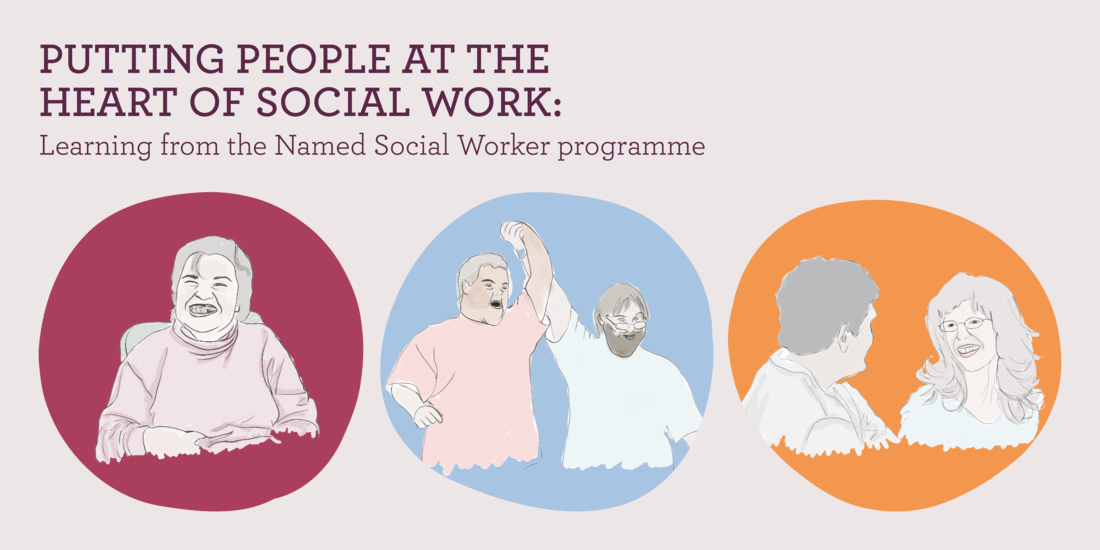
Whilst these features may seem uncontroversial in themselves, their application is much harder. The Lessons from the Named Social Worker publication explores what it takes to put these principles into practice.
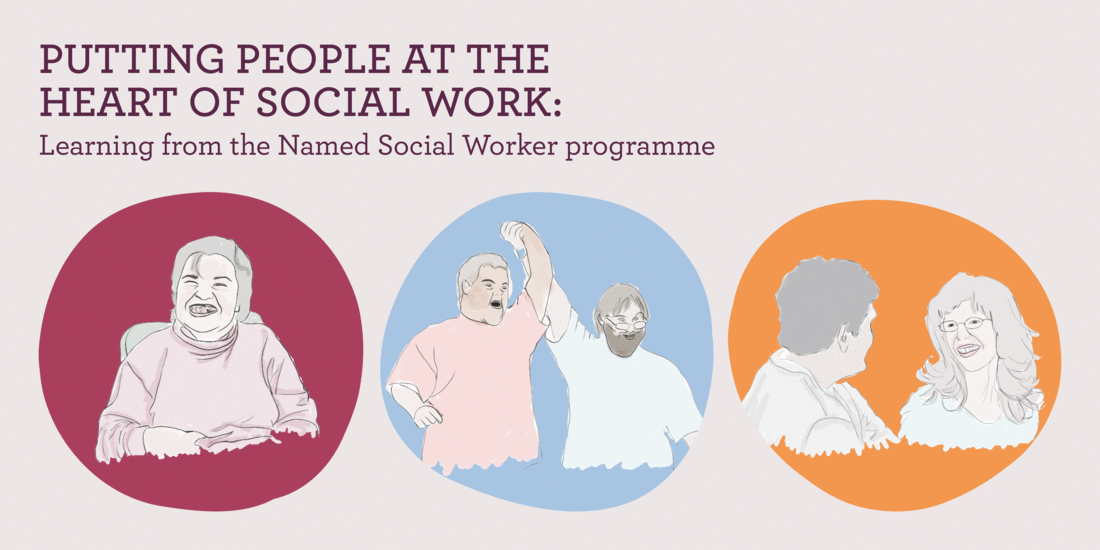
Impact
£1 million
invested by the Department of Health and Social Care into the Named Social Worker Programme
9
local authorities have piloted a named social worker approach
Over 25
Named Social Workers embodying strengths and asset-based practices to achieve the best for the people they are supporting
Over 800
people engaged with the Named Social Worker learning community, including blogs, webinars, newsletters
Emerging evidence from the programme evaluation conducted by SCIE concluded that the approaches taken by pilot sites have had a positive impact on people who use services, the workforce and the wider system.
- Impact on the individuals and the people around them
- experience of better, more trusted relationships with people supported by services and those around them
- increased and meaningful opportunities for people to shape their plans that respond to individual communication needs and preferences
- new packages of support that better meet their strengths, aspirations and needs and those of the people around them
- high levels of satisfaction reported including that people felt that the named social worker listened to them and acted on their behalf
- evidence that people have been better able to live the lives they want including faster and smoother discharges, restrictive decisions overturned and greater stability of placements.
“My social worker is there for me.” Young man supported by his named social worker
- Impact on the named social workers
- increased levels of skills, knowledge and confidence to do good social work e.g. the NSW survey found that confidence to meaningfully engage the person they are working with and those round them to deliver a person-centred plan increased from 47% to 94%
- confidence to advocate for the people they work with and bring their voices to the fore e.g. the NSW survey found that confidence to constructively challenge other professionals/ services increased from 43% to 88%
- higher levels of satisfaction with quality of work.
“Before this pilot, I didn’t feel like the social worker professional voice counted, in this pilot it has.” Named social worker
“Having more time to focus on the person and know what works for them as an individual, getting it right for them, gives me more satisfaction as well as better outcomes for the individual and their family” Named social worker
- Impact on the wider system
- evidence base of good social work in the local context and what it takes to put it into practice
- evidence of reduced costs for packages of care
- better cross-service coordination
- supporting and complementing other strategic developments and policy areas locally
- positive return on investment – a predictive financial return on investment (FROI) exercise suggested that the FROI of the NSW pilot was positive for all sites and generated a NSW FROI of 5.14, meaning that every £1 invested would anticipate a saving or costs avoided of £5.14. Of these costs avoided, 89% were anticipated to benefit the local authorities
“The named social worker has been a significant point of contact for all professionals involved in the case and has ensured an effective transition that promotes the individual’s wellbeing in a way that isn’t usually possible.” Feedback from health partner
Watch the webinar on findings from the final evaluation report:
Named Social Worker Resources
- Webinar slides: learning from the Named Social Worker
- Putting people at the heart of social work: lessons from the Named Social Worker Programme
- Named Social Worker evaluation summary report
- Stories of impact
- Site profiles and resources
- A guide for meaningfully engaging people with learning disabilities
For all resources and publications, click here.
Read The Guardian article here.


